-
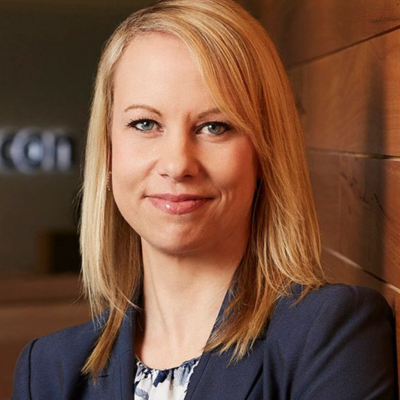 Louise AdamsChief Operating Officer, Aurecon
Louise AdamsChief Operating Officer, AureconLouise is Aurecon’s Chief Operating Officer, responsible for driving all areas of the business to achieve the Group’s strategic goals overseeing performance across each of Aurecon’s Australian, New Zealand and Asian business groups.
Reporting to Aurecon’s Group CEO, Louise is a member of the Group Executive Leadership Team.
In addition to her role with Aurecon, Louise is also a member of both the National Advisory and Fiduciary Boards of Infrastructure Partnerships Australia, a member of the Consult Australia’s Champions of Change Group and is an elected Fellow of the Australian Academy of Technology & Engineering (ATSE). She is also a member of Chief Executive Women (CEW).
In 2020 Louise joined over 50 business leaders working under the guidance of the Victorian Chamber of Commerce and Industry alongside Global Vic, to develop the Victoria Summit a playbook on the state’s strategy to 2050. In 2022 she was also invited by the Chamber to be one of the inaugural Champions for their Chamber Change program, highlighting Louise’s advocacy for female leadership and equality within STEM.
In October 2021, Louise was appointed by the Department of Foreign Affairs and Trade as one of three inaugural Business Champions to further two way trade and investment opportunities to business communities in Vietnam and Australia.
Louise has received numerous awards including the prestigious Sir John Holland Australian Civil Engineer of the Year Award from Engineer Australia’s Civil College in 2023, the 2022 Excellence in Engineering accolade at the Women in Industry Awards and a 2021 Deakin University Alumni of the Year Award.
In November 2020, whilst in the role of Chief Executive for Aurecon across Australia and New Zealand, Louise was named the Australian CEO of the Year as part of The CEO Magazine’s Executive of the Year awards. In 2018 Louise was awarded a Chief Executive Women (CEW) Scholarship to attend the Wharton Business School and in 2016 she received a high commendation at the Consult Australia Awards for Excellence in the Champions of Change Female Leadership Award.
As a Chartered Civil Engineer, Louise has over 20 years’ experience managing and designing works in both civil and multi disciplinary projects in the United Kingdom, Australia, Ireland, Iran, India, Malaysia, Thailand, Laos, Singapore, Guyana, North America, Pakistan, Libya, Qatar, and the UAE.
-
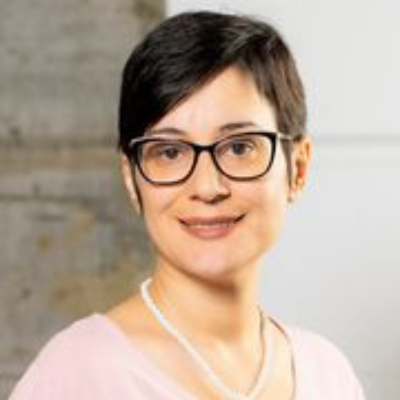 Dr Tooran AlizadehAssociate Professor of Urbanism and Infrastructure, ARC Future Fellow and Co-convener of Smart Urbanism Lab, University of Sydney
Dr Tooran AlizadehAssociate Professor of Urbanism and Infrastructure, ARC Future Fellow and Co-convener of Smart Urbanism Lab, University of SydneyAssociate Professor Tooran Alizadeh is an ARC Future Fellow, investigating the socio-spatial implications of smart city development in India. She is also the co-convener of Smart Urbanism (Research) Lab at the University of Sydney, the lead investigator on the Infrastructure Governance Incubator funded by the Henry Halloran Research Trust, and the Associate Editor of Telematics and Informatics - an interdisciplinary high impact journal (IF: 9.140) on the social impacts of new technologies. A/Prof. Alizadeh served as the program director for the Master of Urban Design (2017-2020) and the Urban Studies Major (2020-2021); and was a recipient of the prestigious Research Accelerator Fellowship (SOAR) at the University of Sydney (2019 and 2020).
Her ongoing research sits at the intersection of smart urbanism, infrastructure, and Southern urbanism; has resulted in over 85 refereed publications; and made meaningful contribution to the public discourse around the urban and equity implications of infrastructure development in Australia and beyond - evidenced by numerous prime time TV and radio interviews, and hundreds of quotations in the print media.
-
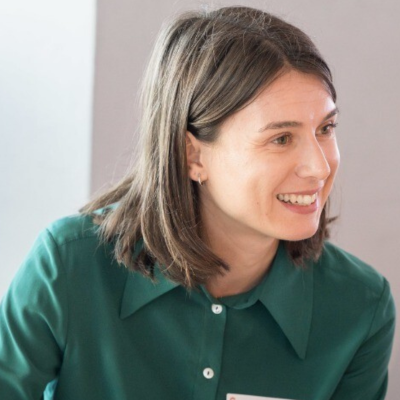 Michaela AspellSenior Consultant – Sustainability and Climate Change, Aurecon
Michaela AspellSenior Consultant – Sustainability and Climate Change, AureconSession: Developing resilient infrastructure to minimise climate change exposure risks
Michaela Aspell is a Senior Consultant in Aurecon’s Climate Change and Sustainability team, whose work focuses on assisting clients understand portfolio and organisational climate risk exposure, to plan for increased resilience against climate change hazards. Michaela has a background in civil and environmental engineering and has worked in public and private sectors in engineering, environmental management, and climate adaptation. Of late, Michaela has worked with critical infrastructure service providers to understand and manage climate risk and is working on a cross-sector collaboration for increased critical infrastructure resilience in Sydney focusing on intersecting pain points and priorities.
-
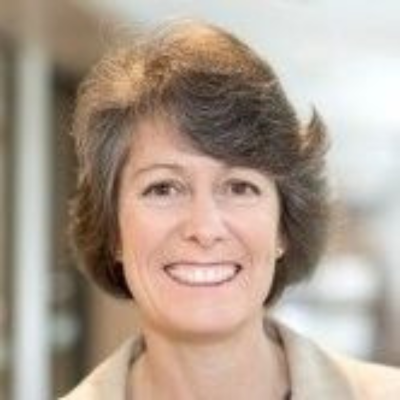 Gabrielle CurtinGroup Executive – Safety, People, Community and Services, Snowy Hydro
Gabrielle CurtinGroup Executive – Safety, People, Community and Services, Snowy HydroGabrielle was appointed to the role in March 2015. Prior to joining Snowy Hydro, Gabrielle held various executive and management positions in safety, human resources, marketing and logistics with Qantas Airways, Shell Australia, Accenture, Repco Automotive and I-MED Radiology.
Originally from the Riverina, Gabrielle is passionate about regional Australia and delights in being able to be part of thriving regional communities as part of her role.
Gabrielle is the former Chair of Frensham Schools in Mittagong and a former non-executive director of Australia’s preeminent youth mental health foundation Headspace and the Qantas Foundation.
-
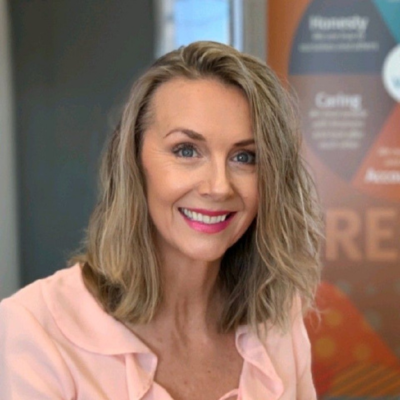 Sonja JohnsonChief Executive Officer, Regional Development Australia – Tropical North
Sonja JohnsonChief Executive Officer, Regional Development Australia – Tropical NorthSession: Creating infrastructure that fosters vibrant & successful regional and remote communities
Sonja Johnson is a community shape agent who drives disparate ideas, strategies, plans, resources and budgets and unifies them to make things happen. With over 20 years’ experience in managing healthcare projects, destination brands and economic and capability development programs in Australia and the Middle East; she has been responsible for improvements to patient outcomes, double-digit increases to tourist and international student numbers, hundreds of millions of dollars in economic impacts and thousands of hours of capability development within communities.
Since being re-appointed as Chief Executive Officer in February 2021, Sonja’s impactful influence on the region and community has been significant. Her role encompasses strategic planning, high-level stakeholder engagement and relationship management and oversight of large-scale infrastructure feasibility studies/business cases.
With full support of the RDATN Board, she has collaboratively identified and lead the activation of several significant projects since joining RDA Tropical North including cluster development in the agriculture and food manufacturing sector, with delivery of the “TNQ Regional Food Network Cluster Development Project”, and in hydrogen with the facilitation of stakeholder workshops in-conjunction with H2Q. Additionally, Sonja has rounded the focus of RDATN to include the arts sector as the appointed FNQ program provider of Regional Arts Services Network (RASN) alongside Cook Shire Council.
She holds a Bachelor of Business degree from The University of Queensland and a post-graduate qualification in International Development from Royal Melbourne Institute of Technology. She is a certified Project Management Professional (PMBOK), certified Australian Economic Developer (Economic Development Australia), member of the Institute of Managers and Leaders (ANZ) and a graduate from the Australian Institute of Company Directors.
Born in Mareeba, and having lived interstate and overseas, Sonja returned home to the TNQ region with her husband Louis, son Liam and dogs Ruby and Astro in 2021, and looks forward to contributing to the region for many years to come.
-
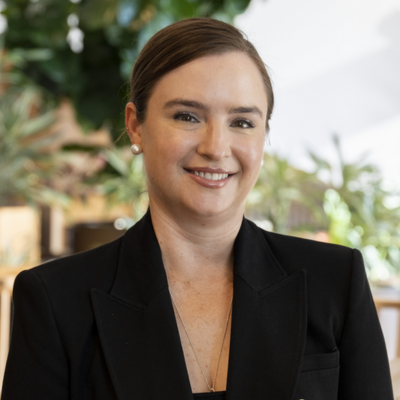 Leah KellyDeputy Director-General - Infrastructure and Regional Strategy, QLD Department of State Development, Infrastructure, Local Government and Planning
Leah KellyDeputy Director-General - Infrastructure and Regional Strategy, QLD Department of State Development, Infrastructure, Local Government and PlanningSession: Delivering the infrastructure needed for growth – a Queensland perspective
Leah leads the Infrastructure and Regional Strategy (IRS) group which plays an integral role in leading infrastructure planning and policy to inform government's investment and delivery of coordinated and resilient infrastructure that supports department's outcomes of securing economic prosperity and liveable communities across the State. IRS also leads the State's planning and delivery of the Brisbane 2032 Infrastructure program and the Queens Wharf Brisbane development.
Throughout her career, Leah has held various leadership roles in the infrastructure industry developing a broad set of skills in areas such as transactions, commercial advisory, infrastructure procurement and delivery, and business case delivery.
She has held senior executive roles in Queensland Treasury, Building Queensland, Aurecon and The University of Queensland, bringing a wealth of public and private sector experience.
As Assistant Under Treasurer at Queensland Treasury Leah led the final Build to Rent Pilot Project and other commercial and financing transactions.
Leah has a Bachelor of Economics, Bachelor of Business Management and Graduate Diploma in Business (Accounting).
-
 Sally KincaidChief People and Culture Officer, nbn Australia
Sally KincaidChief People and Culture Officer, nbn AustraliaSally has responsibility for leading and enabling strategies for NBN Co’s people to deliver the Company’s vision, ensuring safety, culture and sustainability initiatives enable a high-performing workforce focused on NBN Co’s outcomes.
Prior to joining NBN Co, Sally led HR functions and change transformations in Australian based and global enterprises in financial services and commodities, which saw her based in Australia, the UK and NZ.
Sally holds an MBA from Henley Business School in the UK, Bachelor of Business Studies from Massey University, New Zealand, and is a Graduate of the Australian Institute of Company Directors and the University of Cambridge, Institute for Sustainability Leadership.
-
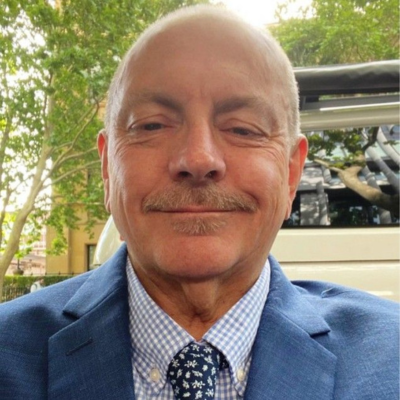 Leon MarskellManager City Standards and Compliance, Campbelltown City Council
Leon MarskellManager City Standards and Compliance, Campbelltown City CouncilLeon Marskell is the Manager City Standards and Compliance at Campbelltown City Council.
His career has expanded over 30yrs in Local Government across both New South Wales and Queensland with extensive experience in the implementation and development of innovation and technology in parking.
Some of his achievements to date have been;
- Macquarie Park Parking Scheme (Greenfield site)
- Birtinya Parking Scheme
- Randwick City Council Smart Parking Program
Leon has been very active in the parking technology space having past held Committee positions on both the Australian National Parking Committee and Australian Institute of Local Government Rangers.
He is also qualified in Business Management, Security And Risk, Public Safety (Emergency Management), Work Health and Safety, Project Management and has completed an extensive 16-week Leadership and Management Course through Newcastle university.
Being a qualified Trainer and Assessor, he has travelled the length of the country providing learning and development opportunities to hundreds of local and state government employees.
In his spare time, he enjoys researching technology companies in the hope of one day having solved the “total integration system” for Local Government.
-
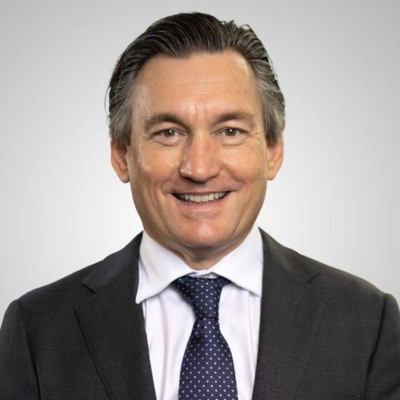 Camillo MasciExecutive General Manager - Building, CPB Contractors
Camillo MasciExecutive General Manager - Building, CPB ContractorsWith over 30 years’ experience in construction and has a detailed knowledge of managing design and delivery of corrections facilities, education and research, health and laboratories, commercial offices and industrial, retail and refurbishment and specialised process facilities. He has expertise in design and construction management, constructability and quality control, programming, planning and contract administration.
Camillo has been responsible for the overall project delivery on a number of projects and understands the complexities when undertaking construction on complex, highly serviced buildings. Through involvement in projects such as the Lotus Glen Correctional Centre, he appreciates the planning and client / stakeholder liaison necessary to complete complex facilities in a brownfield, live operational environment.
Camillo has excellent communication, coordination and analytical skills and can ensure a project is successfully delivered within the parameters of time, cost and quality, while being responsive to the needs of the client and end user / operator.
-
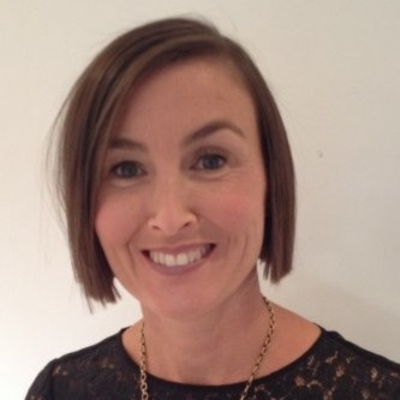 Colleen McDonnellManager, City Planning & Heritage, City of Adelaide
Colleen McDonnellManager, City Planning & Heritage, City of Adelaide -
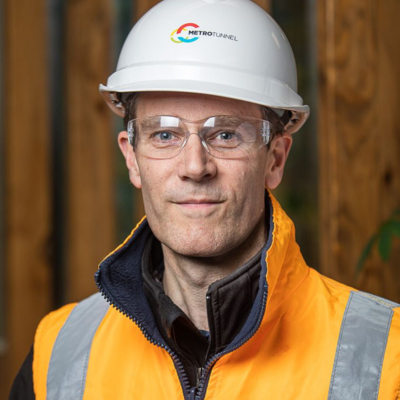 Mick Lo MonacoSustainability Lead, Bouygues Construction Australia
Mick Lo MonacoSustainability Lead, Bouygues Construction AustraliaMick is a Sustainability Lead at Bouygues Construction Australia, currently working in the CYD D&C team delivering the Tunnels and Stations package of the Metro Tunnel Project (Melbourne). Mick is a sustainability professional with over 17 years' experience, delivering sustainable solutions for both private and public entities. He is passionate about leading the integration of sustainability targets and objectives into project solutions and incorperating innovative and pioneering thinking into construction processes. At CYD D&C, Mick's key role is to support design and construction teams to achieve a minimum 5-star Green Star Design & As Built rating at each of the five underground stations, and support the achievement of other project sustaibability requirements including a 'Leading' Infrastructure Sustainability Council (ISC) IS Rating.
-
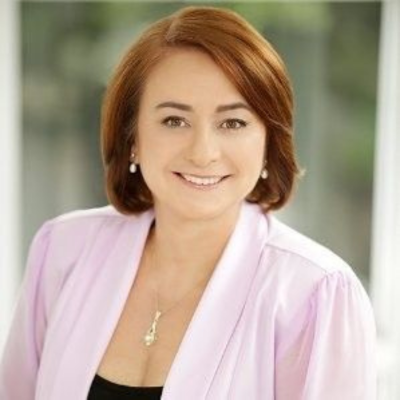 Bileen NelDirector Infrastructure, Hilltops Council
Bileen NelDirector Infrastructure, Hilltops Council -
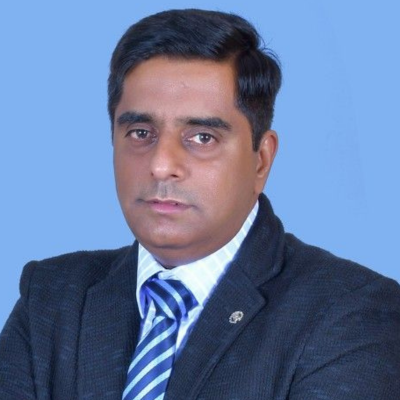 Ravi PrasadNational Environment and Sustainability Manager, Seymour Whyte Group
Ravi PrasadNational Environment and Sustainability Manager, Seymour Whyte Group -
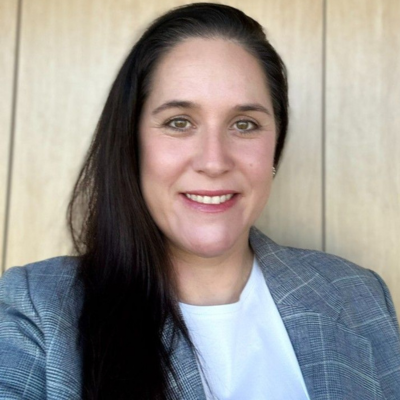 Renee SchneiderHead of People and Culture, Camden Council
Renee SchneiderHead of People and Culture, Camden CouncilI am at my best when I am leading in an organisation that has purpose and is meaningful for its people and customers. I draw on my 20+ years of strategic and operational Human Resource Management experience to lead teams and empower organisations to be their best.
-
 Dr Massoud SofiSenior Research Fellow, University of Melbourne
Dr Massoud SofiSenior Research Fellow, University of MelbourneMassoud Sofi is a Senior Research Fellow at the Department of Infrastructure Engineering, Faculty of Engineering and IT. He is the Chief Investigator (CI) of several industry-led Federal Government-funded Cooperative Research Centre Projects (CRC-Ps) with a focus on upcycling of industrial by-products to construction materials. He is the Deputy Director of the Centre for Recovered Resources (CoRR) and the co-editor of Electronic Journal of Structural Engineering (eJSE ). His research interests include sustainable construction materials, concrete technology and performance, in-situ health diagnostics and monitoring of civil infrastructure.
-
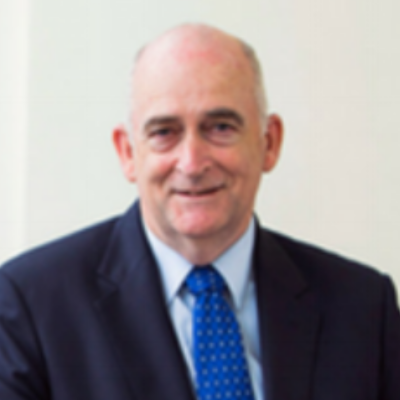 Dr Nigel StapledonChief Advisor, Macroplan
Dr Nigel StapledonChief Advisor, Macroplan -
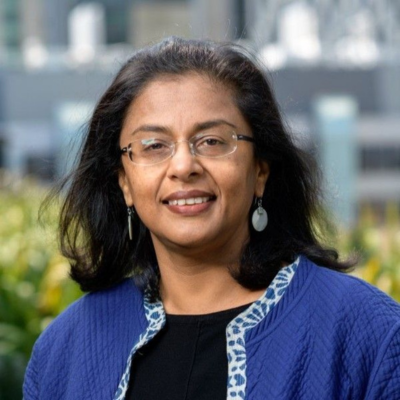 Leena ThomasProfessor – School of Architecture, University of Technology Sydney
Leena ThomasProfessor – School of Architecture, University of Technology SydneySession: The future of sustainable infrastructure in urban communities
Professor Leena Thomas is a sustainable architecture academic and research expert with an interest in transformational design practices that respond to climate change and promote health and wellbeing within the built environment. Her research examines the social and qualitative aspects of building development and operation alongside spatial design and technical building performance.
Leena is internationally recognised for pioneering detailed post-occupancy evaluation and living laboratory approaches to develop a rich narrative of outcomes for people and buildings, and for her work in climate justice, zero carbon development, thermal comfort and high-quality living and work environments. Her studies routinely include iconic green buildings as well as a range of contexts from activity-based working, high density living, retail and transient environments to public buildings and precincts. Funding partners and industry stakeholders have used her research outcomes to validate design decisions toward improving development and procurement of buildings, and to better manage facilities to ensure they reach their potential.
Leena is the Principal Lead Investigator of the $1.7 million, multi-institution Fairwater Living Laboratory project for an 850-home development in Blacktown that is home to Australia’s largest installation of geothermal air conditioning. The project has delivered valuable insights in relation to energy use and electricity demand, user behaviour, resident health and wellbeing, urban heat effects, community development and commerciality.Leena was Chief Investigator (CI) for the ARC-funded Building Occupants Survey System Australia (BOSSA) project the first Australian POE tool endorsed to evaluate and benchmark indoor environmental quality by the National Australian Built Environment Rating Scheme, the Green Building Council of Australia and the International WELL Building Standard. Leena currently leads En.gauge: an ongoing post occupancy evaluation (POE) and research program at the Faculty of Design Architecture and Building that encompasses BOSSA and a suite of next generation POE and living laboratory tools. Other major projects include the Indian Model of Adaptive Thermal Comfort, in which she conceptualised comfort models for both naturally ventilated and mixed-mode buildings; developed in collaboration with CEPT University India, these models are now part of the National Building Code of India and India’s Energy Conservation Building Code, among others.
She was also a CI on a strategic project to support healthier high-density living, and the co-designer of Heat in the Streets, a climate justice project studying the experience of outdoor council and gig workers. Leena is an expert member of the Indoor Environmental Quality Technical Advisory Group for the National Australian Building Environmental Rating Scheme; an international expert for the Indian Society of Heating, Refrigeration and Airconditioning Engineers; and one of eight members of the Technical Advisory Group that supported the board of the Green Building Council of Australia to reshape the Green Star rating system via Future Focus.
At UTS, Leena teaches sustainable architectural design, thermal design, lighting, acoustics and advanced environmental control in buildings. She leads a Global Studio subject in India that’s focusses on climate justice and social sustainability, and Master of Architecture design studios that explore the role of architecture as a catalyst for sustainability and regeneration in the city.
-
 Ryan TranterExecutive Manager - Transport and Regulation, City of Newcastle
Ryan TranterExecutive Manager - Transport and Regulation, City of NewcastleSession: Paving the way for modern, future-forward transport infrastructure
Ryan has built a varied and extensive history working with the City of Newcastle for over 15 years. He has worked in engineering, planning, economic development, strategic, and program roles, which has provided him with an extensive spread of experience across multiple facets of local government. Ryan is now heading up the Transport & Regulation team with City of Newcastle, which oversees the transport, traffic, regulatory operations, and environmental investigation sections.
Over his time with the City, Ryan has worked on the several significant projects including; development and delivery of the Bathers Way shared pathway and coastal infrastructure revitalisation, the preparation and delivery of the Newcastle 500 Supercars event including the design and construction of transformable transport infrastructure elements, managed economic stimulation programs in relation to the events and tourism strategy, and is currently working on refining the delivery of Newcastle Transport strategic direction and delivery program.
A key focus of his current role is in addressing a historic deficit in transport infrastructure, looking to provide a structured approach to planning and prioritisation that matches the significant shifts witnessed in Newcastle in residential development, densification, and community expectations in the support of active transport outcomes.
-
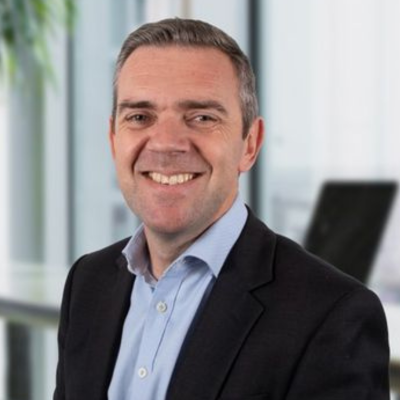 Russell VineGeneral Manager Communications and Engagement, Cross River Rail Delivery Authority
Russell VineGeneral Manager Communications and Engagement, Cross River Rail Delivery AuthoritySession: Navigating complex construction, seamless integration, and community trust
Senior Marketing Executive with over 20 years’ experience developing marketing and communications for some of the world’s largest brands.
Russ is the General Manager Communications and Engagement at the Cross River Rail Delivery Authority and was one of the first team members to be appointed by CEO Graeme Newton when Cross River Rail moved into delivery back in May 2017.
Prior to this, Russ was Managing Director of integrated communications agency Ogilvy Brisbane, where he built up significant experience assisting State Government with many of its better known and most successful large-scale community engagement initiatives.
Currently a member of the Delivery Authority’s Executive Management Team, Russ is passionate about telling the Cross River Rail story and in particular, using digital technology to ensure that people have every opportunity to better understand why Cross River Rail is being built, what it entails and what it means for the future of transport in Southeast Queensland.
-
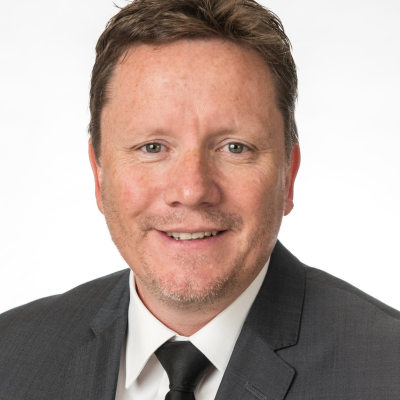 Jamahl WaddingtonHead of Infrastructure, JLL
Jamahl WaddingtonHead of Infrastructure, JLLDrawing upon a rural background, combined with tertiary valuation qualifications and vast experience in the delivery of land and interests in land for major infrastructure projects over more than 20 years, Jamahl possesses a unique set of specific skills to take on both 'hands-on' roles as well as the management of large-scale land access and land acquisition programs.
His direct involvement in many major projects in the specialist field of land access, starting as a Land Access Consultant on the SEA Gas Pipeline in 2000, has provided excellent exposure to corporate and institutional landholders and stakeholders, together with regulators, complementary service providers and key players, particularly in the energy, resources and transport sectors.
Since taking the role as Head of Infrastructure Advisory, Jamahl has managed a large team of professionals delivering land acquisition projects in the energy, resource and transport sectors across Australia most notably in the renewable and electricity transmission sectors.
Jamahl is a regular contributor to industry events and forums most recently presenting in the United States on land access challenges facing the Australian industry.
-
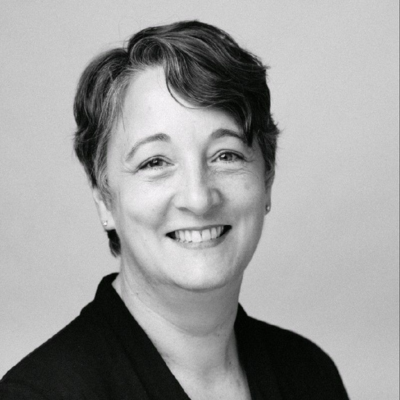 Corrie WilliamsExecutive Director, Collaboration and Innovation, Master Builders Association of Victoria
Corrie WilliamsExecutive Director, Collaboration and Innovation, Master Builders Association of VictoriaCorrie recently moved to a role at as Executive Director, Collaboration & Innovation. Previously at Master Builders Victoria she worked in the training area for 10 years overseeing activities including careers & outreach, builders registration, immersive industry training and their RTO. In that role Corrie worked on projects involving future skills requirements, impediments to upskilling and engaging effectively to facilitate behaviour change. Prior to joining MBV Corrie managed exhibitions that travelled domestically and internationally showcasing Australian scientific research. She has a PhD in science and an ongoing interest in palaeontology as a volunteer at Monash University \ Melbourne Museum fossil digs.
-
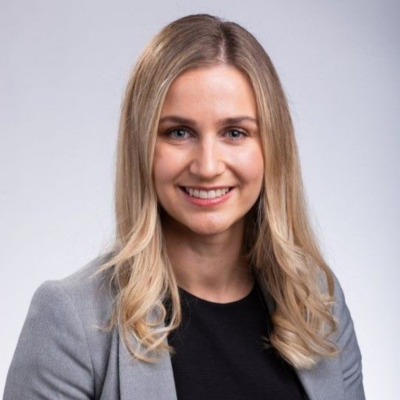 Coralie WilliamsDirector – Project Advisory & Evaluation, Infrastructure Australia
Coralie WilliamsDirector – Project Advisory & Evaluation, Infrastructure Australia

Urban Infrastructure Strategy 2024
1-2 May 2024
Park Royal Darling Harbour | Sydney | Australia
.png)